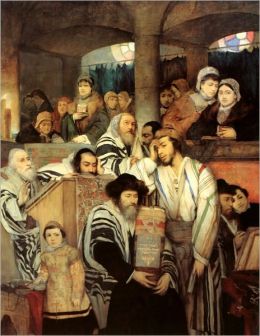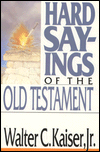
Legends of the Jews Vol 2
Jewish Biblical History by
Louis Ginzberg
pubOne.info present you this new edition. The arrangement and presentation of the material in this volume are the same as in Volume I. In both my efforts have been directed to bringing together as full as possible a collection of Jewish legends that deal with Biblical personages and events.

Legends of the Jews Vol 4
Jewish Biblical History by
Louis Ginzberg
Legends of the Jews Vol 4 includes Joshua, the Judges, Samuel, Saul, David, Solomon, Elijah, and Esther.

Hard sayings of the bible
Bible Language Explained by
Walter C. Kaiser
Hard Sayings of the Bible provides easy to read answers to the difficult verses in the bible that makes sense to the general reader. It is a handy reference book that explains over 500 troubling bible verses to find solutions ranging from everyday discrepancies to God’s justice. The author sheds a contemporary light on the passages, making them more relevant today, as opposed to the general practice of travelling through time and finding ancient meanings irrelevant in these modern times. The book lists over dozen of new chronologies, essays, articles, linguistic cross-references and cultural backgrounds, combining resources to untie the scriptural knots. The author’s research academic record and vast experience as a professor of theology shine through in this 1990 Christianity Today Critic’s Choice Award. His command over the scripture, biblical criticism and exegesis cuts through the heavy verses on miracles and prophesies, eventually sorting out misunderstandings, contradictions and confusion.

Popular Beliefs are the Biblical?
State of the Dead by
Dr. Samuele Bacchocchi
What is the view of different religions about the afterlife? What is the perspective of Egyptians, Greek, Jews, and Christians about Immortality of the Soul? Why did the reformers reject the belief about purgatory? How do the different sects of Christianity evaluate the Bible? Is the Bible free from errors or full of errors? Why are there historical attacks against the Bible, like preventing its distribution and reading by the Roman Empire, Moslems, Communists, and even Catholics and Protestants themselves?
These are some of the questions that Bacchocchi answered. In this book, he presented the popular beliefs that we have today and explained that not because it’s popular, it’s biblical, because it turns out that many of our beliefs are rooted in Greek philosophy. He reexamined if these beliefs are still in harmony with the teachings of Jesus’ day and back it up with what the Bible had said. It was the sincere hope of the author that the truth that God revealed for our salvation could be recovered.

Two Babylons
Pagan Origins of Religion by
Alexander Hislop
Two Babylons is born from a passion connecting ancient Babylonian religion to arguments from Egyptian, Grecian and Roman mythologies. The original book is from 1853; it centers on the apocalyptic symbolism of Babylon’s image in the Book of Revelations and arguments about the non-scriptural precedents of some of the fundamental practices of the Roman Church. Alexander Hislop also analyzes the pagan roots of religious holidays and accepted doctrines such as Easter and crucifixion, respectively. Drawing from various religious and historical resources, Alexander provides detailed comparisons between festivals today and those of the ancient Babylonian religion. Although Alexander Hislop wrote a long time before anyone decoded this ancient Babylonian religion, certain Christian evangelical protestant groups highly regard this work. Much of this book depends upon the links between influential mysteries, historical figures and folk etymology. Continuously going through critical analysis, the book is considered a continuation of the ancient Babylonian religion.

Fossilized Customs
Pagan Origins of Religion by
Lew White
Lew White’s books encourage his readers to understand the underlying purpose of the Ten Commandments, making them easy to understand rather than coming across as an impossible set of commands to follow. Lew White treads the waters of ancient traditions and religions, unveiling original symbols, practices and meanings to expose the truth about worship. An eye-opener, the book is written to create new drive and motivation so that his readers can find purpose and commit to obeying. Lew White has presented his thorough research and brings forth strong points that unearth the true religious anthropologies. Although it is not a quick read and a lot to take in, Fossilized Customs is worth its time. This book is a research tool that helps us understand the inherited customs and how their interpretations have trickled down to generations. Lew White’s thirty-two years of research is the missing piece that completes the puzzle.

Introducing the World of the New Testament
Canonization, Sources and Major Players by
Various
This book serves as an introduction to the history, theology and literature of early Christianity, written to inspire and support students. A responsible text for twenty-first-century believers, it captures the excitement of early Christians and transmits them to the faithful today. The book acts as a passageway from biblical times to modern times, placing the New Testament in today’s context. A highly readable and accessible guide written by a distinguished scholar, this book is for students seeking answers to Christianity. Large or small, the author discusses a range of related subjects, from the purpose of the New Testament, its understanding in modern times, the meaning of resurrection, Paul’s controversial letters, the Gospels to practical ways enabling believers today to live lives as in the era of Jesus and the apostles. The book curates decades of research and writings in one volume to open the reader’s eye to the bigger picture.”

Comparing Luke and Matthew
Understanding Luke by
Frank Nelte
The love of Scriptures involves exploring and correlating gospels. Comparing Luke and Matthew by Frank Nelte focuses on the content of the four accounts of Jesus’ life and mission.
This book mainly focuses on Matthew and Luke’s gospel stories as an example of two gospels sharing content while having different theological focuses. The text of each gospel identifies and substantiates the overarching themes of both gospels. Frank Nelte highlighted that readers need to be clear on which parts of the Bible are “inspired” and which parts are not, and even what elements are merely expressions of the respective authors’ thoughts? Nelte stated that all of the Bible’s writings had the finest of intentions when it came to presenting what is proper and true. As a reader and believer, may this book encourages us to keep learning the Bible.